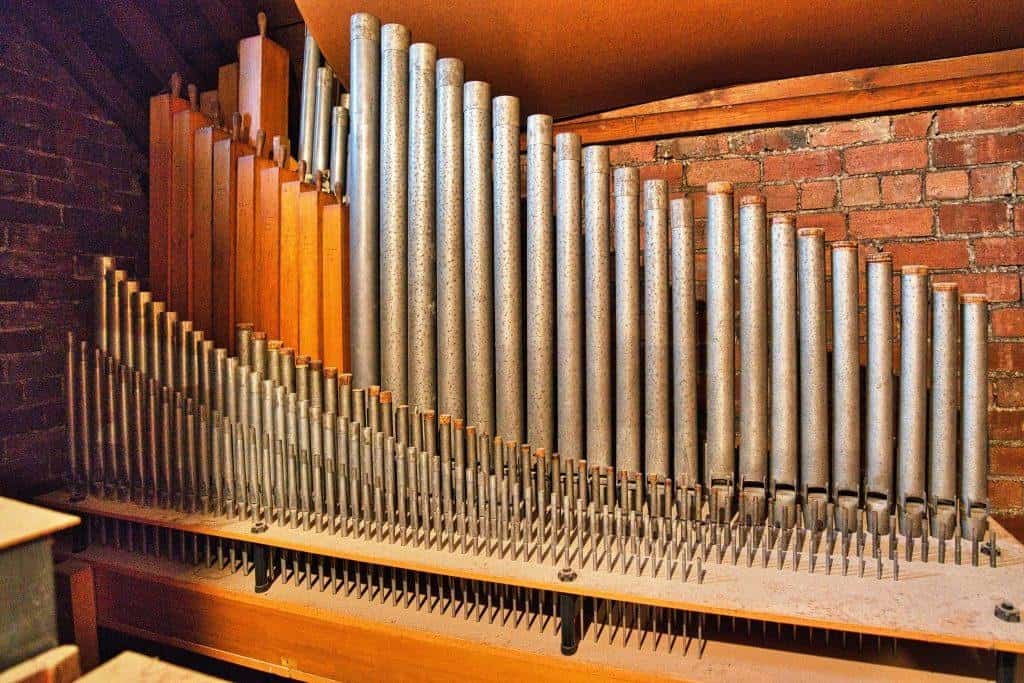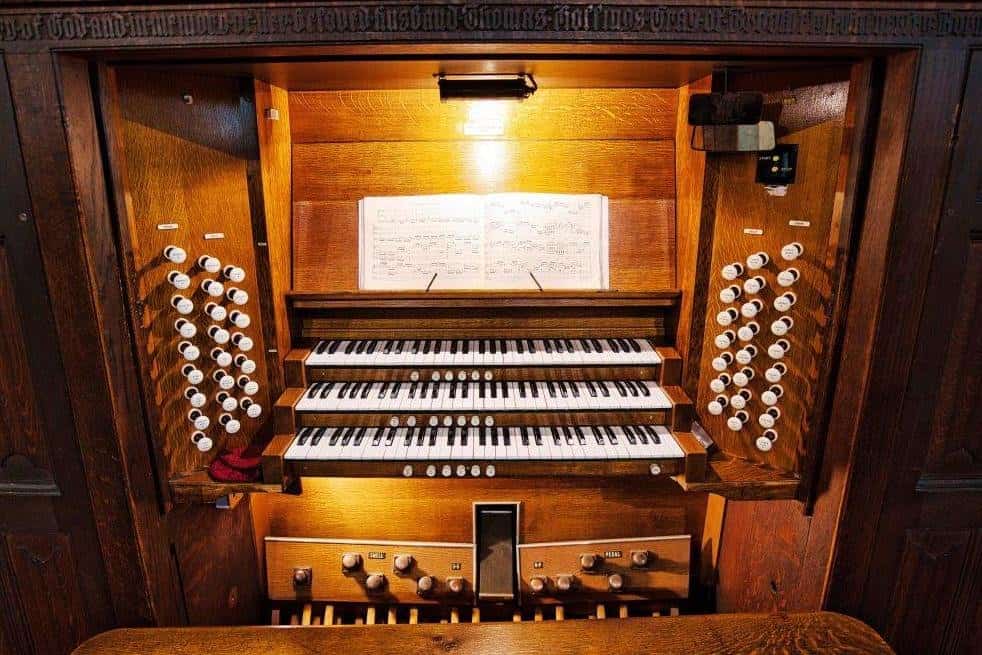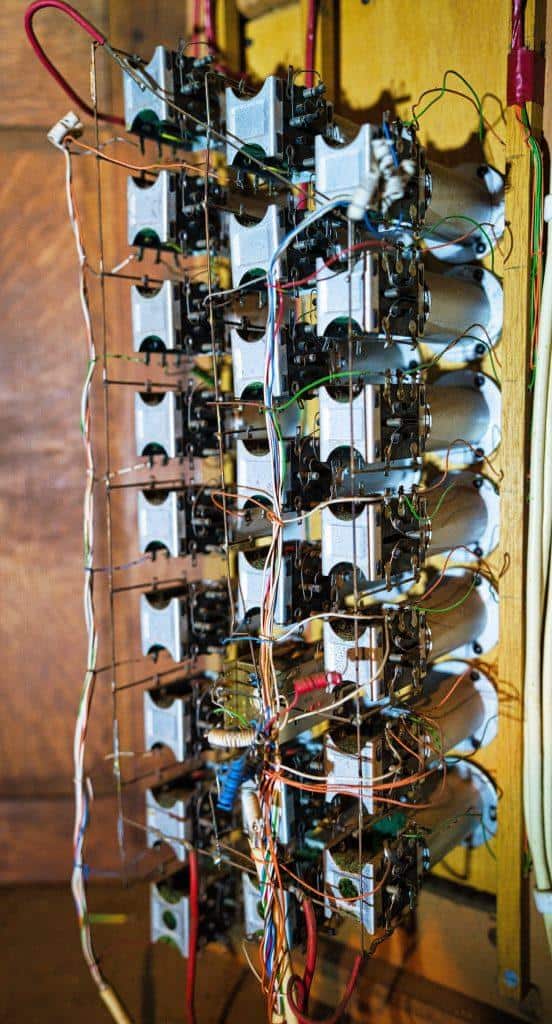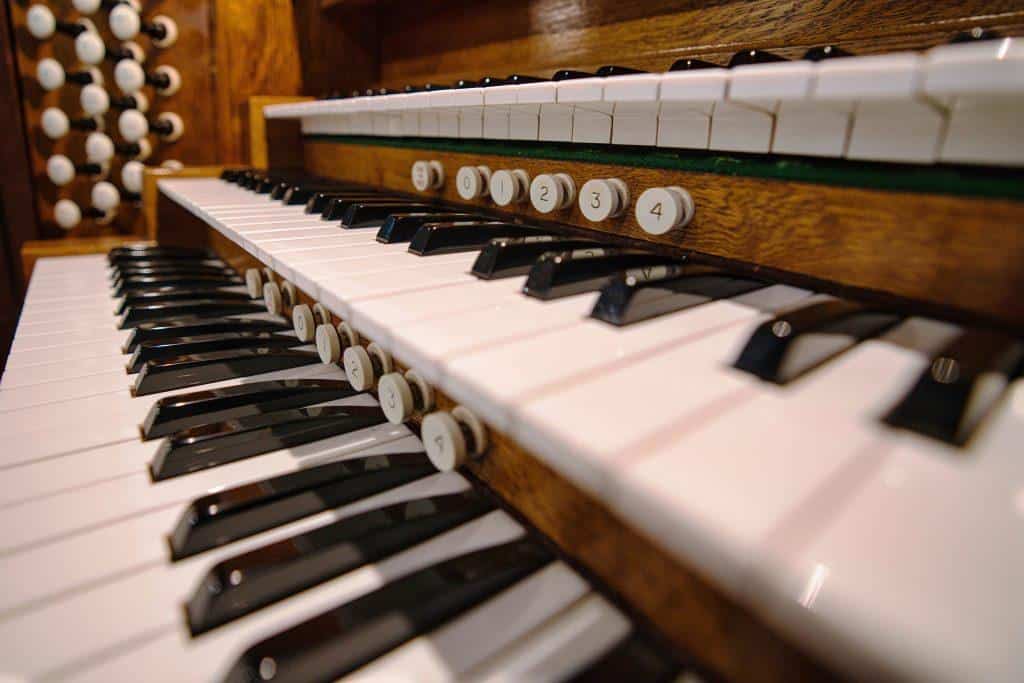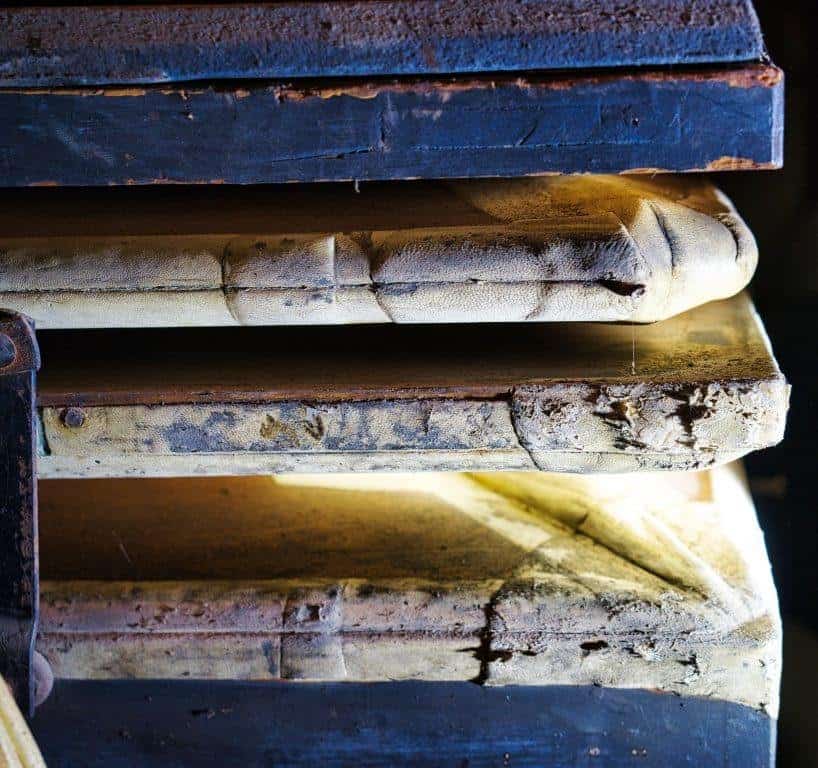We welcome you to make a gift by sponsoring one or more of the almost 2,000 individual organ pipes and have your name or the name of who or what event you’re dedicating the sponsorship to, beautifully inscribed for posterity, in a dedicated book.
Our Binns organ in Calverley Parish Church has almost 2,000 pipes. These pipes desperately need cleaning (and then tuning) and the connection between the stops that open and close them (drawstop solenoids) need replacing, due to wear and tear. When the organ was newly built, this air would feed directly into the pipes, resulting in the musical note being sounded immediately. Now, when a note is played, there is a time delay of several seconds when air can be heard before the musical note is sounded. This affects the music being played and how it sounds to the listener.
Some of the types of pipes in our organ include Flute, Viol, Oboe, Horn, Clarinet, Trumpet, Trombone. These are just some of the musical instruments’ sounds which can be played on an organ such as ours which makes the organ a very versatile instrument, able to play a range of music, both traditional and contemporary.
The Solo stop refers to any rank of pipes that is intended to be used by itself, soloed out in a single line, with the other hand in accompaniment and (if needed) the pedals offering a supporting line to the accompaniment. This means that they need more care and maintenance than the other pipes and are delicately tuned by reeds inside them, which makes them even more expensive!
Below are the Solo Stops on our organ, each of which has a full rank of pipes which play individual notes, including sharps and flats:
- Solo Horn 8′
- Solo Oboe 8′
- Solo Trumpet Major 8′
- Solo Trombone 16′
- Solo Trumpet 8′
- Solo Clarinet 8′
To sponsor one Solo pipe would cost £50 but should you wish to be very generous, you could sponsor an entire Octave of Solo pipes (which is a total of 12 pipes) for just £250 – a bargain!
However, alongside all the Solo pipes, there’s also many more Standard pipes, arranged in ranks as can be seen in the pictures above. So you could choose to sponsor one Standard pipe at a cost of £10, or an entire Octave of Standard pipes (12 pipes) for just £75.
It’s our hope that all the pipes in the organ will be sponsored but more is needed! In order for the pipes to function to their maximum effect (they literally join together or ‘couple’ more than one manual keyboard or pedal board to another), they need stops called ‘Couplers’. These are very small but play a vital role in enabling the organ to reach it’s full potential. To sponsor the full set of ten Couplers would cost £25.
The penultimate item on the organ console to restore this great instrument are the sets of Pistons, 5 in each set, resulting in a total of 25. This would cost the princely sum of £50. These pistons allow various registrations or mixtures of stops to be programmed to allow the organist to quickly change the sounds in a piece of music, such as make the sound quieter when the words of a hymn dictate it.
But even when we have done all this, we still have the three bellows which need repairing and re-leathering. This will actually cost over £10,000 as they are huge, the largest measuring approximately 10 feet square! We propose that these could be sponsored at a cost of £500 each, £1,500 in total. We realise this is a huge amount and probably beyond most individual budgets, but together, a number of smaller donations could enable the work on the bellows to be completed.
The bellows are now supplied with air by an electric motor. When originally built, before the wider use of electricity, the bellows were pumped by hand (the old pump mechanism can still be seen in the corridor behind the organ). As air is pumped into the bellows they expand like giant leather balloons, then when full, the organ is ready to play. Stops are pulled out and when the organist plays a note, that air is released into the pipes that have been opened by the stops and music is made.
Unfortunately, now, after 127 years, the leather of these bellows, repaired many times, is starting to perish and split. The noise of air escaping can be heard all the time the organ is switched on.
One day soon, unless repaired, the splits in the bellows will be so large that there will not be enough air left to go into the pipes and we will have no organ! Already when all the stops are pulled out there is not enough air to keep all the pipes playing.
We welcome any general donations towards our restoration project, large or small on the previous page (click here). And if you’d like to sponsor any pipes or one of the bellows in particular, please use one of the buttons below. If you’d like to learn any more about our organ, it’s history, or our restoration project, please contact [email protected]. Thank you for reading and for donating towards this project.

